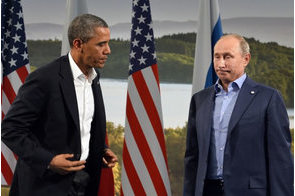Eight-in-ten Africans say government corruption is a big problem

Summary
An average of 38% of the people in nine African countries identify health care as highest national priority.
A new survey by the Pew Research Center finds that African publics rate health care and education as their top development priorities. When asked which of six pressing issues besides the economy should be the highest national priority, an average of 38% of the people in nine African countries identify health care. Education is also an important concern. An average of 23% say improving education should be the top national priority. In South Africa, education is named more often than any other option.
Having experienced relatively high rates of economic growth in recent years, the Pew Research finds that people in African countries are more likely than citizens of many wealthier nations to believe that their countries’ economies will improve in the short term. African publics also believe that the next generation will be better off financially.
Nevertheless, the Washington D.C.-based nonpartisan think tank that provides information on social issues, public opinion, and demographic trends says people in sub-Saharan Africa still believe that their countries face tremendous challenges. An average of eight-in-ten or more say lack of jobs, poor health care, poor quality education, government corruption and crime are very big problems in their countries.
But the report also shows that reducing corruption is a lower priority, as is improving the supply of food. But at the bottom of the list of priorities are investing in infrastructure, such as roads and bridges. Only 4% of people in SSA think that improving the national energy supply is a priority. Eight-in-ten or more in Nigeria, Tanzania, Ghana and Uganda say government corruption is a very big problem.
Many of those surveyed believe foreign companies involved in extractive industries positively affect their countries. More than half of those polled in countries like Kenya, Nigeria and Uganda polled say these companies have a favourable impact. But at the same time, they also identify negative side effects. An average of 76% of Ghanaians and 71% of Nigerians use the phrase “they ruin the environment” to describe foreign companies engaged in extractive industries.
In the survey, which was conducted among 9,062 respondents from March 25 to May 21, 2015, 78% of those polled were confident that their national governments will help address their nation’s biggest problems. Another key finding is the fact that there is a desire for more foreign aid. However, significant shares (average of 53%) across these nine nations perceive foreign assistance programmes to be corrupt or inefficient.
Related
-
The crisis of the well-crafted candidate
From the standpoint of conventional American politics he (Donald Trump) is entirely inappropriate and should not be leading ...
-
Managing a world of great powers
It has taken the international institutions some time to catch up to the changing world order.
-
The gendered politics of care
It is one thing to let women into the workforce; it is quite another to embrace full equality and create a cultural, ...









